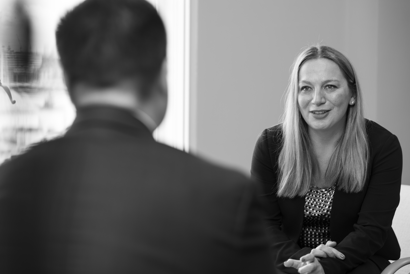Despite the considerable time and energy spent in the last decade discussing law’s gender diversity problem, many solutions fall short because they fail to tackle the core obstacles preventing women from reaching the upper stratums of law.
Arguably, the core challenge for women lawyers is developing new business. Power at law firms frequently derives from success in origination and building a book of business, which has historically been easier for men as they inherit client relationships and opportunities through informal networks from more senior partners—almost all of whom are men.
Because of the inherent unconscious biases that result in women not always having the advantages of their male counterparts, women have had to go above and beyond to generate new business for their firms. Indeed, a slew of recent gender bias suits against law firms have demonstrated the long-standing problems of compensation and how women receive credit for generating business.
In order to overcome this challenge, women must often use new and innovative ways of developing business and securing clients to gain the recognition they deserve and ultimately to reach equity partnership and leadership levels. As a woman lawyer and former litigator with extensive experience in business development, I share below some thoughts for women lawyers to build that all important book of business.
Problem solving is the difference between business development and sales
As I found in my own prior practice, I was uncomfortable with the term "sales" and all the connotations this terminology implicitly invokes. In my experience the key to business development in law firms is not about being “pushy” or “aggressive” but finding solutions to the leading problems facing clients. Problem-solving is the difference between business development and sales.
The good news: Problem-solving is exactly what clients are looking for—lawyers are hired for their personal ability to handle a matter and find creative solutions to complex problems. The intellectual component of practicing law means skilled lawyers are not fungible commodities, so women lawyers have the opportunity to demonstrate their inherent capacity for problem-solving and use it to build trust and confidence in client relationships. Clients want to know that you care about the needs of their business and that they are not just a source of revenue.
One tip I have learned for turning a meeting with a prospective client into a long-term relationship is to always ask "the last question.” The idea is to be proactive and not leave the meeting saying, “call me when you have something,” but rather to ask, "I’ve just told you about what I do—do you have anything now that could benefit?" This direct and forward-thinking attitude shows that you are looking for ways to help and progress the relationship, not just sell something.
Legal finance and The Equity Project as a business development tool
Legal finance can be used as a problem-solving business development tool that can help build client relationships and foster growth. It allows lawyers to provide clients with attractive fee arrangements backed by outside capital and take on promising cases on a risk-sharing basis that they otherwise would not have been able to because of their firms’ level of risk tolerance.
It was against this background that Burford founded The Equity Project with a view to closing the gender pay gap in law. The Equity Project is a $50 million pool of capital earmarked for financing women-led matters.
For the women lawyers I work with, The Equity Project is an important tool: It gives them access to capital that allows them more flexibility in offering clients solutions. With capital from The Equity Project, we provide an economic incentive for law firms to proactively promote women as the lead on cases and to communicate to women specifically that there is an opportunity to use litigation finance for building a book of business.
The launch of The Equity Project highlighted just how many women have not yet thought about how litigation finance can be a tool for winning business in a new and innovative way. Since launch we have had nearly 100 inquiries and have matters currently being reviewed for Equity Project funding representing an aggregate of around $35 million in legal fees and expenses.
Why “(women) lawyers”?
You may wonder why I implicitly qualified my reference to women lawyers in the title of this article. First and foremost, it’s because any business development lesson applies as much to men as to women. For example, while The Equity Project is capital earmarked for women, legal finance can be used as a business development tool by any lawyer.
But the lack of gender equity at the highest levels in law demands our attention, and it requires us to do whatever we can to generate awareness of the unique challenges women lawyers face. We launched The Equity Project because the gap for women remains so stark that we must prioritize any opportunity to shine a light on ways they can increase their success until true parity and equity are achieved.
As an industry, we must prioritize innovative solutions to law’s gender diversity problem, and helping women lawyers be better business developers is one path to doing so.




